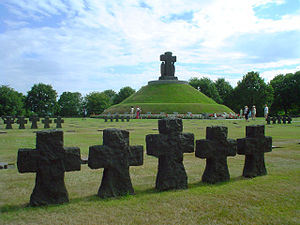 A Veterans Day speaker at Ellsworth Air Force Base’s South Dakota Air and Space Museum focused on the US military cemeteries scattered throughout Europe, providing resting places for American soldiers from both world wars.
A Veterans Day speaker at Ellsworth Air Force Base’s South Dakota Air and Space Museum focused on the US military cemeteries scattered throughout Europe, providing resting places for American soldiers from both world wars.
World War II was the last war that left fallen soldiers in overseas graves, managed by the American Battle Monuments Commission. The cemeteries are hauntingly beautiful gardens for visitors who want to connect with almost forgotten family members whose lives ended abruptly on distant battlefields. Continuity with the past is steeped in reverence and patriotism.
A whirlwind slideshow tour of the cemeteries reminded us that Americans have moved on as a people, however. A striking difference is seen in the Christian crosses and Stars of David that serve as headstones for graves back then, compared with the tablet-style markers in US National Cemeteries today.
The Veterans Day speaker also included photographs of a German cemetery at Normandy that he visited (photo), something that was more or less avoided by earlier generations. We remember the controversy that President Reagan invited when he visited in May 1985 the German military cemetery at Bitburg, dedicated to the Third Reich’s Waffen-SS but also to young German soldiers who were probably little different from draftees from any country, at any time in history.
Young adolescents leave quiet neighborhoods and farms with little knowledge of the big political or historical picture, to fight in places they’ve never heard of. Even in combat, the individual soldier has only a vague sense of the larger forces at play.
Empathy for enemy combatants continues as part of the wartime healing process. Ken Burns’ recent PBS film series on Vietnam allows lots of opportunity for viewers to understand the motivations of the human side of the Viet Cong and North Vietnamese fighters. Are, then, veterans from all wars and political orientations capable of sharing a “band of brothers” sense of common plight and experience?

